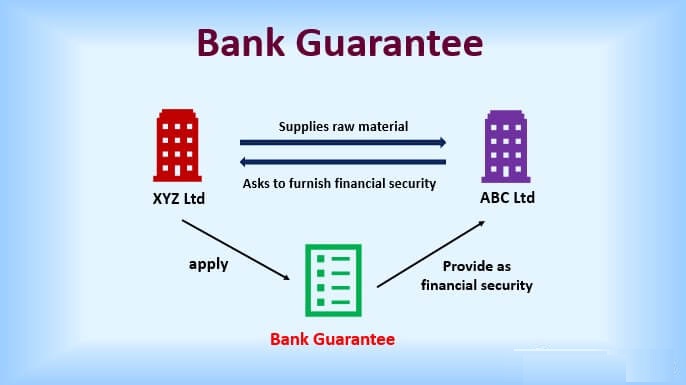Bank Guarantee
Aug 22, 2022 By Triston Martin
Bank guarantees are assurance banks provide to a contract between two outside parties, buyers and sellers, or in connection with the guarantee of an applicant and a beneficiary. The guarantee acts as an instrument for managing risk for the beneficiary since the bank is responsible for the performance of the contract should the buyer fail to pay their obligation or debt.
Bank guarantees are a crucial role for small companies; through its due diligence on the application, the bank can establish credibility as a trustworthy partnership for business with the person who is the beneficiary of the assurance. In the end, the bank gives its stamp of approval on the applicant's creditworthiness and co-signs in the applicant's name in relation to the particular contract that the two parties have entered into.
Understanding Bank Guarantees
A bank guarantee occurs the promise of a lender to pay for a loss should the borrower is in default on a loan. The guarantee allows a business to purchase something it normally would not, thus assisting in the growth of businesses and encouraging the development of entrepreneurial activities.
There are various types of bank guarantees, including indirect and direct guarantees. Banks usually use direct guarantees in domestic or international business. They are which are directly issued to the recipient. Direct guarantees can be used in cases where the security of the bank does not depend on the validity, existence, and enforceability of primary obligation.
Individuals often use direct guarantees for cross-border and international transactions and are more adaptable to different laws and practices as they do not have formal requirements. Direct guarantees are typically used in the export industry and are particularly prevalent when public agencies or government organizations receive the assurance. Some countries cannot accept foreign banks or guaranteeing companies due to legal issues or other requirements for form. For an indirect guarantee, the beneficiary uses a second bank, usually a foreign institution with its head office in the home country.

Example
For an example of a real-world scenario, look at a major agricultural equipment manufacturer. While the company might have suppliers across the globe, it is generally best to work with local suppliers for essential components, both for convenience and cost of transportation.
Therefore, they may be interested in signing the contract with a small metalworks shop located within the same industrial zone. Due to the small business being unknown and not well-known, the large business will need to get the bank's guarantee before signing a contract for $300,000 worth of machine parts. In this case, the larger firm is the beneficiary, and the tiny vendor would be the one applying.
If the small business receives the bank's assurance and the larger company accepts it, they will sign an agreement with the vendor. In this case, the company can then take the $300,000 payment in advance and understand that the vendor will supply the agreed-upon parts within the next year. If the vendor fails to fulfill the agreement, the agricultural equipment manufacturer can claim the loss resulting from the vendor's breach of the conditions of the contract with the bank. With the bank's guarantee, the major agricultural equipment maker can reduce the length of its supply chain without jeopardizing its financial position.
Types of Bank Guarantees
A bank loan is for an exact amount and an unspecified period. It clearly defines the circumstances in which the guarantee is relevant for the specific contract. Bank guarantees can be either performance-based or financial.
When a bank guarantees a loan, it is the bank's guarantee to the purchaser that it will pay the debts due to the seller. If the buyer fails to pay, the bank will take on the financial burden on its own with a minimal fee at first, due from the buyer at the time of the security issuance.

If a guarantee is based on performance, the beneficiary can request compensation from the bank in the event of non-performance of the contract obligation. Suppose the counterparty fails to provide the services promised. In that case, the customer can claim the losses resulting in non-performance to their guaranteeing party - the bank.
For bank guarantees for foreign banks, like international exports, it is possible to have an additional third party, namely the correspondent bank, which operates in the country of residence of the target person.








